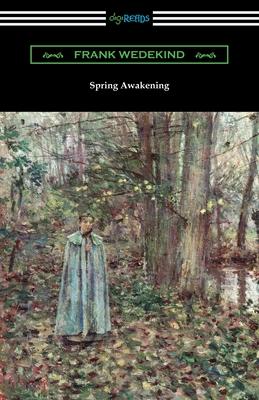
Zustellung: Do, 30.01. - Di, 04.02.
Versand in 2 Wochen
VersandkostenfreiBestellen & in Filiale abholen:
"Spring Awakening" is German playwright's Frank Wedekind's controversial and shocking drama of sexuality and repression. First performed in 1906 in Berlin, though written by Wedekind several years earlier, the play focuses on the lives on several adolescents coming of age in late nineteenth century Germany. Three teenage boys, Melchior, Moritz, and Wendl, and girls Wendla and Martha, struggle with abuse, a lack of information and acceptance, and their emerging sexual awareness in a strict and religious society. Wedekind believed the sexual and religious repression of German society led to dangerous and heartbreaking consequences. The play does not shy away from difficult subjects and explicitly deals with themes of sexual abuse, rape, teenage desire, abortion, suicide, and homosexuality. In the beginning the play was been heavily censored and rarely performed. When it was brought to New York in 1917 for the first time it was only permitted to be performed once for a special, invited audience. "Spring Awakening" was largely forgotten until it was adapted into a musical to critical acclaim a century after its debut. Wedekind's haunting and tragic modern masterpiece is as timely and affecting now as it was when first performed. This edition follows the translation of Francis J. Ziegler and is printed on premium acid-free paper.
Produktdetails
Erscheinungsdatum
09. November 2019
Sprache
englisch
Seitenanzahl
62
Autor/Autorin
Frank Wedekind
Übersetzung
Francis J. Ziegler
Verlag/Hersteller
Produktart
kartoniert
Gewicht
91 g
Größe (L/B/H)
216/140/4 mm
ISBN
9781420964899
Entdecken Sie mehr
Bewertungen
0 Bewertungen
Es wurden noch keine Bewertungen abgegeben. Schreiben Sie die erste Bewertung zu "Spring Awakening" und helfen Sie damit anderen bei der Kaufentscheidung.










